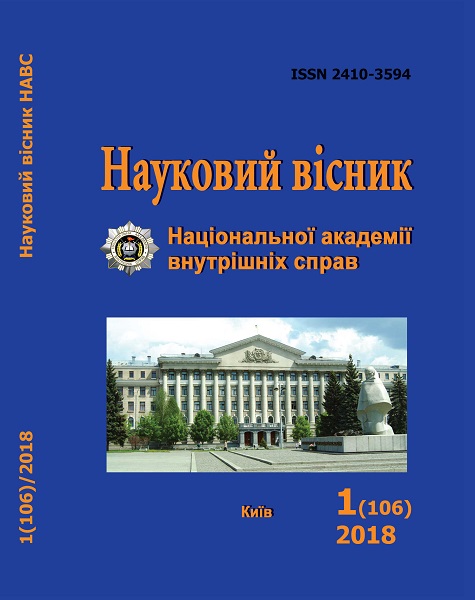Modern Models of Organization of Operational and Direct Documentation in Activities of Political Organizations the Republics of Kazakhstan and the Republic of Belarus
Abstract
Article presents analysis of operative data fixation and its organization methods applied by law enforcement agencies in Belarus and Kazakhstan.
Specific aspects of organization of operative data fixation in the abovementioned states are distinguished upon the study of legislative acts regulating operative and search activity. In particular, author paid attention to data fixation procedures in the course of basic operative and search activities (interviewing, receipt of certificates, sample collection).
Key differences in legislative regulation mechanisms regarding the abovementioned activities performed by law enforcement agencies in Belarus, Kazakhstan and Ukraine.
Thus, in Kazakhstan legislators clearly distinguish general and special operative and search activities: special include primarily activities directly affecting rights guaranteed by the law – personal privacy, secrecy of correspondence, telephone conversations, postal matters and the right for dwelling inviolability.
Also operative and search activities in Kazakhstan may be open as well as covert including procedural (covert investigative actions and search activities).
In Belarus legislators provide extended regulation of operative and search activities with clear distinguishing of general and individual approaches to performance of key operative ad search tasks including data fixation. Due attention is also paid to measures taken to safeguard persons involved in performance of operative and search activities, prevention of data leakage, protection of citizens’ constitutional rights.
Downloads
Abstract views: 78 PDF Downloads: 35
- Authors reserve the right to authorship of their own work and transfer to the magazine the right of the first publication of this work under the terms of the Creative Commons Attribution License, which allows other persons to freely distribute published work with mandatory reference to authors of the original work and the first publication of an article in this magazine.
- Authors have the right to enter into separate additional agreements on non-exclusive dissemination of the work in the form in which it was published in the journal (for example, to post an article in the institution's repository or to publish as part of a monograph), provided that the link to the first publication of the work in this journal is maintained.
- The journal's policy allows and encourages the posting of articles by authors on the Internet (for example, in electronic storehouses of institutions or on personal websites), both before the submission of this manuscript to the editorial office and during its editorial processing, as this contributes to the creation of a productive scientific discussion and positively affects the efficiency and dynamics of citing the published work.




